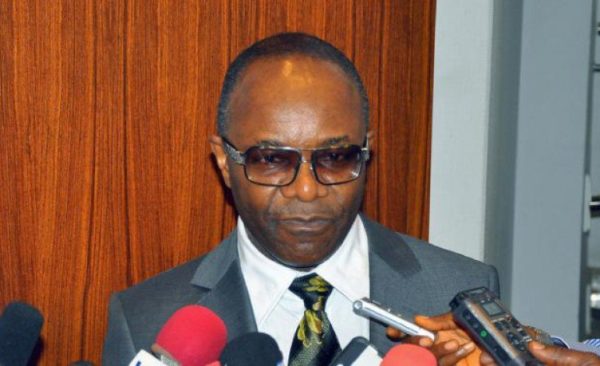
Kachikwu disclosed this in his keynote address at the commissioning of the Nigerian Army Welfare Limited Guaranty Gas plant at Mambilla Barracks, Abuja.
He said: “We are working with the Liquified Petroleum Gas (LPG) companies producing cylinders, with very strong presidentially backed incentives to be enable them to produce LPG cylinders in this country.
“About four of them are getting facilities from the Nigerian Content Development Monitoring Board (NCDMB) from the more than 200 million facilities we have.
“They are getting import exemption for materials to be assembled for the plants.
“Once you do that, you also expect them to assemble them around the more than 700 local government areas in the country.
“We are targeting that.
“In the next one or two years every local government area will have gas filling plants.”
He added that cylinders produced by the companies would be distributed free to consumers as part of efforts at encouraging local consumption in the country.
According to him, the government is also planning to optimise the country’s vast resources through the virtual gas pipeline system.
Already, the Nigerian National Petroleum Corporation (NNPC) has signed a contract with a private firm for the activation of the virtual gas pipeline network for power generation.
The project, which will be facilitated through the installation of Mini-LNG plants, is designed to supply, in the first instance, about 84 million standard cubic feet of gas per day (mmscf/d) by transporting gas from production fields using customized cryogenic tankers to areas not easily accessible through pipelines.
This is coming at a time that Nigeria’s current proven gas reserve is about 202 trillion cubic feet (TCF), up from the initial figure of 199TCF with a potential for up to 600TCF in undiscovered resources.
Virtual gas pipeline is use of specialised trucks to take products from production centres to destinations in the hinterland.
The minister added that efforts were made for the Department of Petroleum Resources (DPR) to have regulations that would make every filling station operate a gas filling point.
He said that if the more than 10,000 filling stations in the country were to have a gas filling pump, it would go a long way toward helping to achieve the LPG penetration drive of the government.
“It will help to move from current 5,000 megawatts to 7,000 megawatts, but targeting about 14,000 megawatts.
“Gas is an essential element for us to achieve that,” he said
Commenting on Gas flaring, Kachikwu noted that government planned to stop gas flaring under the gas commercialisation project by the year 2020 – 10 years ahead of the United Nation’s deadline.
“We are going to bring in private companies into the facilities to trap the gas being flared, convert them, and use them both for power generation and other purposes.
“And that programme has been ongoing and we have more than 7,000 applications and we need to zero in on those with the engineering, financial and even technical capacity to extract the products.
“Once we do that, we can exit 100 per cent from gas flaring by 2020, and that is a project the Federal Government has invested so much energy on,” he stated.
The minister lauded the military for the projects, saying their commitment to securing the project was in line with the 7Bigwins of the government.
He added that if properly managed, the project could create jobs and help to maintain clean environment, among other things.
Kachikwu, therefore, urged other stakeholders to emulate the military to help boost domestic use of LPG in the country.